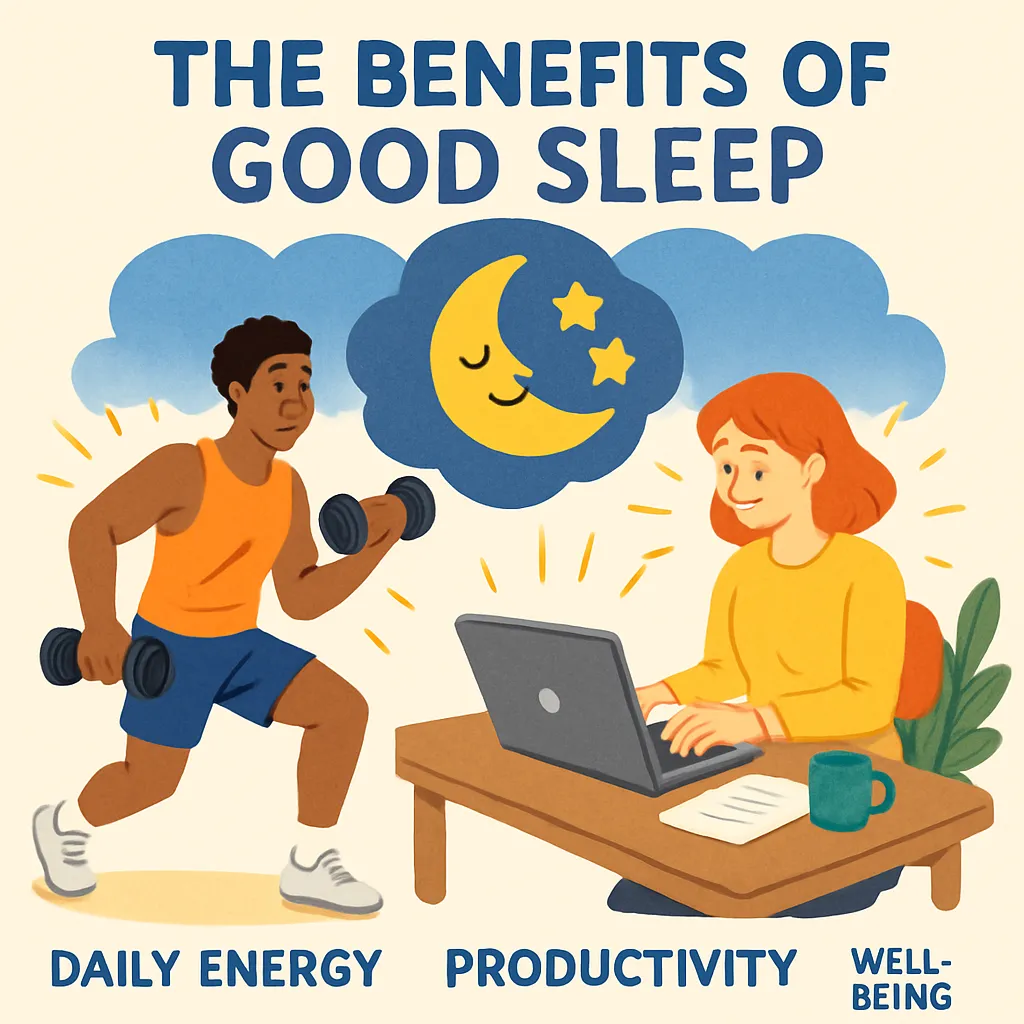Sleep Apnea and Your Health: Understanding the Hidden Connections
Published Date: May 12, 2025
Sleep apnea is far more than just a sleep disorder that causes loud snoring and daytime fatigue. This condition creates a complex web of health impacts that can affect virtually every system in your body. Understanding these connections is crucial for recognizing the importance of seeking treatment and maintaining long-term sleep health. From cardiovascular complications to metabolic disruptions, the effects of untreated sleep apnea extend far beyond poor sleep quality, making it a serious medical condition that demands attention and proper sleep solutions.
The Cardiovascular Connection: Your Heart Under Stress
The relationship between sleep apnea and cardiovascular health is one of the most well-documented and concerning aspects of this sleep disorder. When you have obstructive sleep apnea, the repeated breathing interruptions create a cascade of physiological stress responses that directly impact your heart and blood vessels.
Blood Pressure Elevation: Each time your breathing stops during sleep, your blood oxygen levels drop, triggering your body's "fight or flight" response. This causes your heart rate to increase and blood vessels to constrict, leading to spikes in blood pressure. Over time, these repeated episodes can lead to sustained high blood pressure (hypertension), even during waking hours.
Heart Rhythm Disturbances: The stress of repeated oxygen deprivation can disrupt your heart's normal electrical activity, leading to irregular heartbeats (arrhythmias). People with sleep apnea are at significantly higher risk for atrial fibrillation, a common type of irregular heartbeat that can increase stroke risk.
Increased Heart Attack Risk: The combination of elevated blood pressure, irregular heart rhythms, and the stress of repeated oxygen deprivation significantly increases the risk of heart attack. Studies show that people with severe untreated sleep apnea have a much higher risk of experiencing a heart attack, particularly during nighttime hours.
Stroke Risk: The cardiovascular stress caused by sleep apnea also increases stroke risk. The condition can contribute to the formation of blood clots and can worsen existing cardiovascular conditions that predispose to stroke.
 Cardiovascular Health
Cardiovascular Health
Figure 1: A medical consultation discussing the cardiovascular impacts of sleep apnea.
Metabolic Disruptions: The Diabetes Connection
Sleep apnea significantly impacts your body's metabolic processes, particularly those related to blood sugar regulation and weight management:
Insulin Resistance: The repeated stress responses triggered by breathing interruptions can interfere with your body's ability to use insulin effectively. This insulin resistance is a precursor to type 2 diabetes and can make existing diabetes more difficult to control.
Glucose Metabolism: Poor sleep quality and the stress of sleep apnea can disrupt normal glucose metabolism, leading to elevated blood sugar levels. This is particularly concerning for people who already have diabetes or prediabetes.
Hormonal Imbalances: Sleep apnea affects the production of several important hormones, including:
- Cortisol (stress hormone): Often elevated, contributing to weight gain and blood sugar problems
- Growth hormone: Production may be reduced, affecting tissue repair and metabolism
- Leptin and ghrelin: These hunger-regulating hormones become imbalanced, leading to increased appetite and weight gain
Weight Gain Cycle: The fatigue caused by poor sleep quality often leads to reduced physical activity and increased cravings for high-calorie foods. This can create a vicious cycle where weight gain worsens sleep apnea, which in turn makes weight management more difficult.
Cognitive and Neurological Impacts
The brain is particularly vulnerable to the effects of sleep apnea, as it requires consistent oxygen supply and quality sleep for optimal function:
Memory and Learning: Sleep apnea interferes with the brain's ability to consolidate memories and process information learned during the day. This can affect both short-term and long-term memory formation.
Executive Function: The prefrontal cortex, responsible for decision-making, planning, and impulse control, is particularly sensitive to sleep disruption. People with sleep apnea often experience difficulties with concentration, problem-solving, and decision-making.
Mood Disorders: There's a strong bidirectional relationship between sleep apnea and mood disorders. The condition can contribute to the development of depression and anxiety, while these mental health conditions can also worsen sleep problems.
Cognitive Decline: Long-term untreated sleep apnea may accelerate age-related cognitive decline and potentially increase the risk of dementia. The repeated oxygen deprivation and sleep fragmentation can contribute to brain tissue changes over time.
 Cognitive Health
Cognitive Health
Figure 2: A person engaging in daily activities with renewed energy, showing the cognitive benefits of treatment.
Immune System Suppression
Quality sleep is essential for a healthy immune system, and sleep apnea can significantly compromise your body's ability to fight off infections and diseases:
Reduced Immune Response: The chronic stress and poor sleep quality associated with sleep apnea can suppress immune function, making you more susceptible to infections like colds, flu, and other illnesses.
Slower Healing: Poor sleep affects the body's ability to repair tissues and heal from injuries or illnesses. People with sleep apnea may find that cuts, bruises, and other injuries take longer to heal.
Vaccine Effectiveness: Some studies suggest that people with sleep disorders may have reduced responses to vaccines, potentially making immunizations less effective.
Inflammatory Response: Sleep apnea can trigger chronic low-grade inflammation throughout the body, which is associated with numerous health problems including cardiovascular disease, diabetes, and certain cancers.
Respiratory System Effects
While sleep apnea primarily affects breathing during sleep, it can also have impacts on overall respiratory health:
Daytime Breathing Issues: Some people with sleep apnea may experience breathing difficulties during waking hours, particularly if they also have other respiratory conditions.
Increased Risk of Respiratory Infections: The disrupted sleep and potential immune suppression can make people with sleep apnea more prone to respiratory infections.
Complications with Other Lung Conditions: Sleep apnea can worsen existing conditions like asthma or chronic obstructive pulmonary disease (COPD).
Gastrointestinal Connections
The relationship between sleep apnea and digestive health is an emerging area of research:
Gastroesophageal Reflux Disease (GERD): There's a strong association between sleep apnea and GERD. The changes in pressure that occur during apnea episodes can contribute to acid reflux, while GERD can also worsen sleep apnea symptoms.
Liver Health: Sleep apnea has been linked to non-alcoholic fatty liver disease, possibly due to the metabolic disruptions and chronic inflammation associated with the condition.
Digestive Function: Poor sleep can affect digestive processes and gut health, potentially contributing to various gastrointestinal issues.
 Health Connections
Health Connections
Figure 3: A peaceful sleep environment that promotes overall health and well-being.
The Importance of Comprehensive Treatment
Understanding these wide-ranging health connections underscores the importance of comprehensive sleep apnea treatment:
Early Intervention: The sooner sleep apnea is diagnosed and treated, the better the chances of preventing or reversing some of these health complications.
Multidisciplinary Approach: Effective treatment often involves collaboration between sleep specialists, cardiologists, endocrinologists, and other healthcare providers to address all aspects of the condition.
Lifestyle Integration: Successful treatment typically combines medical interventions like CPAP therapy with lifestyle modifications including weight management, exercise, and good sleep hygiene.
Regular Monitoring: Ongoing monitoring of both sleep apnea treatment effectiveness and related health conditions is essential for optimal outcomes.
Taking Control of Your Health
The extensive health connections of sleep apnea might seem overwhelming, but they also highlight the tremendous potential benefits of effective treatment. By addressing sleep apnea, you're not just improving your sleep quality – you're taking a comprehensive approach to protecting your overall health.
Recognize the Signs: Understanding these health connections can help you recognize symptoms that might be related to sleep apnea and motivate you to seek evaluation from a sleep specialist.
Commit to Treatment: Knowing the far-reaching health impacts can provide motivation to stick with CPAP therapy or other prescribed treatments, even when they feel challenging initially.
Monitor Your Health: Work with your healthcare team to monitor not just your sleep health, but also cardiovascular, metabolic, and other health markers that can be affected by sleep apnea.
Advocate for Yourself: If you suspect you have sleep apnea or if your current treatment isn't providing adequate relief, don't hesitate to seek a sleep study or second opinion.
The hidden connections between sleep apnea and your overall health make this condition far more than just a nighttime nuisance. It's a serious medical condition that can affect virtually every aspect of your physical and mental well-being. However, with proper diagnosis, effective treatment, and ongoing management, the negative health impacts can be significantly reduced or even reversed. Taking action to address sleep apnea is one of the most important investments you can make in your long-term health and well-being.
Related Articles
- Obstructive Sleep Apnea Symptoms: Recognizing the Silent Threat to Your Health
- Tracking Your Sleep with Technology: A Step-by-Step Guide
- Understanding Your Sleep Patterns with Self-Test Questionnaires
